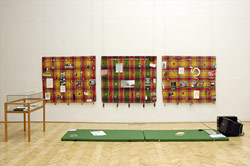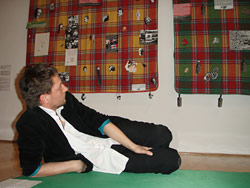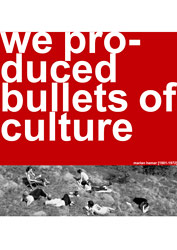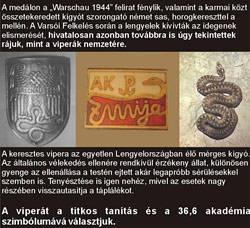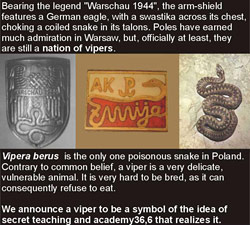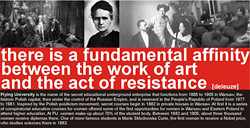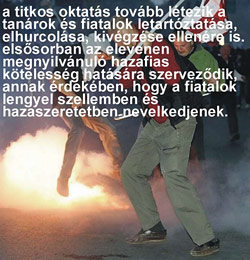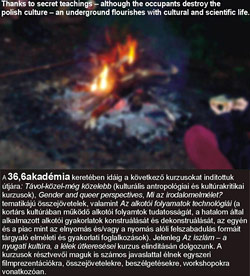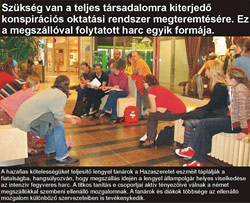Roman Dziadkiewicz
Secret Teaching is a long-term research project examining the question of historical and contemporary forms, methods and tools taking education as a form of resistance. In September 2006 we have created the V36,6academy as a model and a training structure for testing our studies, and for developing experimental, self-educational processes.
* * *
36,6Academy is a project based upon our previous experiences in the field of self-education, non-institutional education and socio-artistic activity that we have taken as Group156, Health Center Art Society and fundacja36,6 since 1994. Project originates from a critical reflection on our previous activity. It is a continuation of chosen threads or their redefinition in the domain of methods and strategies (analysis of actual potentials, possibilities and impossibilities) or aims of work.
From the other (historical) perspective, 36,6academy refers to many (often dating back to the XIX century) strategies of survival or redistribution of knowledge which are based on the models of invisibility (conspiracy) , dispersal and mobility that are fixed in Polish tradition as original patriotic attitude directed against the invaders administrations - Prussian, Russian and Austrian-Hungarian (1772-1918), and later - in the XX century - against German and Soviet (with the PRL constitution) occupants. Such phenomena as Flying University (called up in 1885 in Warsaw as a result of transformation of conspiratorial, self-educational courses for women) or secret teaching (illegal, held in private houses, lessons and courses in all domains of education, very popular during World War II in Poland) bring us an inspiration and help us to create and to test contemporary versions of tools.
At the theoretical level, 36,6Academy is a realization of a network model with an opened composition and peer2peer model (partnership, horizontal relation and interaction which are very effective in e.g. open source programmers community). It is also realization of rhizome structure (by Deleuze). Art (thinking and education) appears here as acts of resistance (Deleuze).
Education in 36,6Academy is a self-education through a dialog and direct contact, it is education achieved in a relation with tutor, lecturer who guides or cooperates with the partner. Exercises take place in - as small as possible - groups. As a model situation we have selected a model of individual studies, guided by chosen lecturer. 36,6Academy do not have permanent place for meetings and work. Lectures, exercises and consultations are held in private student's and/or tutor's flat, studio or in the other - used temporarily and spontaneously - spaces (e.g. galleries, reading-rooms, resources of transportation, public spaces, shopping malls). A program of each course is organized by the lecturer, as a result of consultation with the participants.
36,6Academy do not have any permanent source of financing. We assume the rule that lecturers do not incur costs of their work. Other rules will be elaborated during realization of the project. 36,6Academy is open for any collaboration with personal, non-institutional and institutional partners.
Education in the 36,6Academy is not only the goal but also an environment for work (a platform for meetings), which inclines participants (those who are educated and those who educate) to concentrate on the various issues. In our work we refer to the idea of liberal education in its source meaning. Within it's not associated with the liberal ideology but with the medieval model of studies in the domain of liberate arts (artes liberales) that is connected to the ancient and mysterious models of studying. In this - most overall sense - 36,6Academy is more an experimental research for developing alternative and realistic models of thinking and critique, than educational project.
project: Roman Dziadkiewicz cooperation: Janek Sowa, Mateusz Kula, Agata Dutkowska, Jakub Czupryński, Zorka Wollny, Ewa Tatar, Bettina Gerhart, Hubert Kopeć, Michał Maziarz, Andrzej Żwawa and others. production: fundacja36,6 partners: University of Art (Budapest), Academy of Fine Arts (Krakow) and others.

